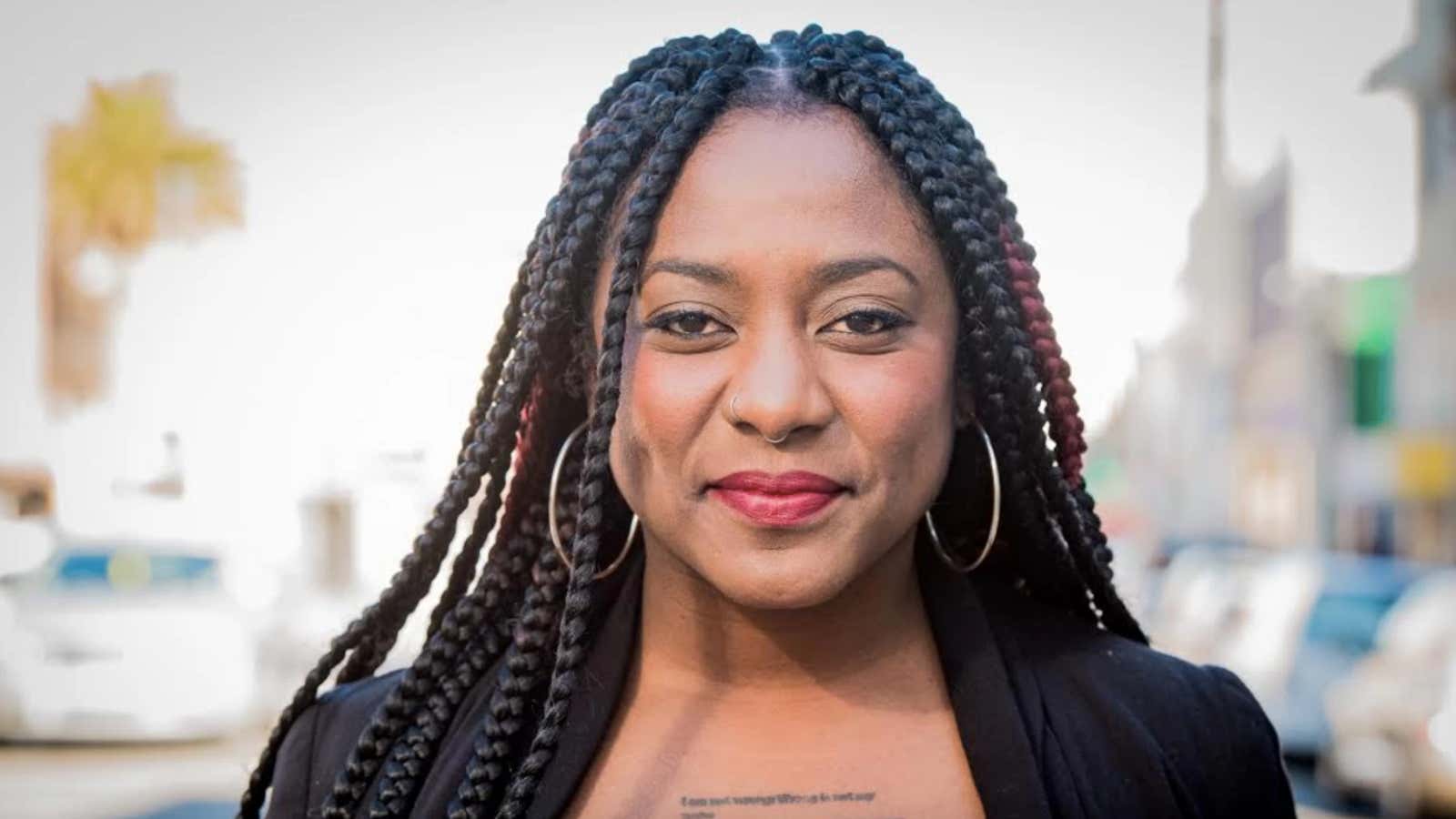Alicia Garza did not intend to start the Black Lives Matter movement when she posted on Facebook after George Zimmerman, a 34-year-old mixed race man, was acquitted for murdering Trayvon Martin, a 17-year-old black child, in Sanford Florida, in February 2012. Martin was unarmed, carrying only Skittles and an ice tea.
“When George Zimmerman was acquitted… I wrote a post on Facebook that we later called ‘A Love Letter to Black People,'” said Garza, the co-founder of Black Lives Matter, while speaking at the Lesbians Who Tech Summit in New York on Sept. 13.
Garza, a black queer woman, is an Oakland-based organizer, writer, and public speaker who is currently the special projects director for the National Domestic Workers Alliance, the nation’s leading voice for dignity and fairness for the millions of domestic workers in the United States.
“I wrote a post saying that we deserve to live,” she continued. “That we deserve to live with dignity, no matter who we are, or where we come from. I ended that post by saying that our lives matter. And my sister, Patrisse [Cullors], put a hashtag in front of it.”
Garza said she was confused by the mark: “I was like, ‘What is this, why are you putting the pound sign?’ I’m not quite a millennial.”
Cullors then put Garza’s Facebook post on Twitter, with the hashtag #BlackLivesMatter. Their colleague and friend, Opal Tometi, then built the sites that these three women were able to use to ensure that people could connect online about the injustice of Martin’s murder (and Michael Brown’s and others) and take action together offline.
Black Lives Matter’s mission, as stated on its website, “is to build local power and to intervene in violence inflicted on Black communities by the state and vigilantes.”
The movement has been massively successful in organizing hundreds of thousands of people, and dollars, to fight for “ideological and political intervention in a world where Black lives are systematically and intentionally targeted for demise,” as the founders write of Black Lives Matter’s “herstory.” What’s more, it laid the groundwork for today’s women’s movement, the Women’s March, the rise of #MeToo, and other sociopolitical, digitally native social justice movements.
As Garza explains, “today, Black Lives Matter is a hashtag, it’s an organization with over 40 chapters in four countries, and it is the civil rights movement of our generation.”
Given the tremendous power Garza and her team inspire, it was fascinating to hear her definition of “power” at the Lesbians Who Tech Summit:
For me, power means getting to make decisions over your own life. Power means being able to determine where resources go, who they go to, where they don’t go, and who they don’t go to.
For me, power is about the ability to shape the narrative of what is right, what is wrong, what is just, what is unjust. But most importantly for me, power is about making sure that there are consequences when you’re disappointed. When the people who you elect don’t carry out the agenda that you elected them to carry out.
I think, I know, that black people deserve to be powerful. Time and time again we have challenged this country to live up to its values, freedom, justice, democracy for all. Our grandparents, and our parents, and now many of us have put our lives on the line to be free, and they didn’t intend to turn back, and I don’t think we should turn back either. But that means we’ve got to get serious about building power. The power we need for all black communities to live well.
And I don’t know about you, but I personally am tired of being talked to and not having my concerns, my needs, and my dreams, addressed. I’m tired of being told what I should care about, when I should care about it, rather than being engaged about what I care about, and being asked what I want to see in order to address the challenges that we face every day.
While Garza’s definition of power centers on her work empowering black lives, it’s applicable to all social and political movements—especially today, as the US government, led by a president who’s admitted to sexually predatory behavior, moves toward confirming a Supreme Court justice who refers to birth control, women’s primary means of making decisions over their own lives, as “abortion-inducing drugs.”
To address her frustration with America’s centuries-long dismissal of black people’s needs and wants, Garza is leading the Black Census Project, the largest survey of black people’s needs in America that’s been done since the Reconstruction era. It’s part of the Black Futures Lab, which works to make black people powerful in politics. To date, the project has reached over 18,000 black people in America, including many people who identify as black, but not African-American. Their goal is to reach 200,000 in the coming year.
